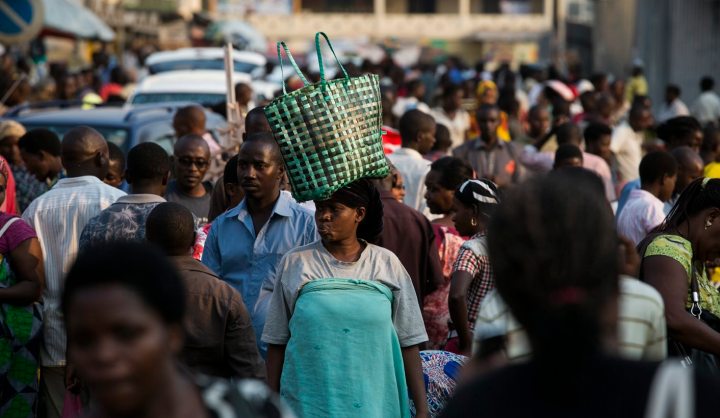Africa
Burundi: A dangerous game of wait and see

Election day came and went in Burundi, over the protestations of just about everybody except President Pierre Nkurunziza and his ruling CNDD-FDD party. The question now is not about the result, which is a foregone conclusion, but about what comes next. SIMON ALLISON looks at the options.
In Bujumbura, there’s a distinct lack of anticipation about the result of this week’s presidential election. Barring a miracle, incumbent President Pierre Nkurunziza will win a third term at the helm of this tiny East African country. It helps that the main opposition parties have boycotted the vote, citing violence and intimidation and arguing that Nkurunziza’s candidacy is unconstitutional as he has already served his allotted two terms.
Nkurunziza’s insistence on running, and his administration’s brutal enforcement of that claim, has already led to months of protests, an attempted coup, at least 100 deaths, an exodus of refugees into neighbouring countries, and looming fears of a return to the brutal civil war from which Burundi has barely recovered.
The international community agrees with the opposition’s criticism of the president’s decision, with an unusually vocal African Union (AU) going so far as to refuse to send election observers to monitor the vote – quite a statement from a body which has passed recent elections in the Democratic Republic of Congo, Zimbabwe and Ethiopia as free and fair.
Burundi’s constitutional court, controversially and under immense political pressure, took a different view: concluding, on a technicality, that Nkurunziza’s first term hadn’t counted.
But Nkurunziza’s imminent victory isn’t only about the opposition boycott. Too many analyses ignore the fact that he is genuinely popular in much of the country, as evidenced by the official turnout figure of 75% (although this figure should be treated with caution: there are no observers to independently confirm it, and it is likely to have been inflated by acts of intimidation and coercion). This inevitably complicates calls for him to step down.
With the results not in question, attention now turns to what happens next. Nkurunziza’s strategy is clear: he’s going to brazen it out, and hope that neither the opposition, the East African Community nor the African Union will have the balls to challenge the fait accompli that he presents to them. He’ll also be hoping that Burundi’s invaluable contribution to peacekeeping efforts in Somalia counts in his favour.
The opposition – which is by no means a united front – has more difficult decisions to make. There are two main options on the table. The first, and least palatable, is war. “The next [step] is to organise ourselves just to resist, to make Pierre Nkurunziza understand that he must leave and then that we are prepared to do it by force, by organising a military force,” said General Leonard Ngendakumana, who was involved in the failed coup in May, speaking from exile in Dar es Salaam.
The second is to persuade Nkurunziza to share power in a government of national unity, as a prelude to new elections. “For the sake of Burundi, the idea of a government of national unity can be accepted,” said Agathon Rwasa, head of the opposition Amizero y’Abarundi coalition, speaking to Reuters. Rwasa envisages a joint administration with an expiration date sometime in 2016, where the opposition would have control of key ministries (weary, perhaps, of the trap that Morgan Tsvangirai fell into in Zimbabwe when he failed to secure any real power in the power-sharing arrangement). Surprisingly, an adviser for Nkurunziza said the president would not oppose a government of national unity, although he would not countenance cutting his term short.
There are difficult decisions too for the AU, which finds itself hamstrung by its organisational structure. A source in the AU’s Peace and Security Council said council members were growing increasingly frustrated with the East African Community’s (EAC’s) mediation efforts, which seem to be going nowhere – but that out of respect for the regional body they could not act until the EAC facilitator, Ugandan President Yoweri Museveni, had delivered his report. But the AU’s options are limited anyway: the strongest censure it can deliver is to suspend Burundi from the AU, and to slap sanctions on Nkurunziza and his inner circle.
Burundi’s future, in other words, remains highly volatile and unpredictable. But while the rest of us wait to see what’s going to happen, thousands of Burundians are deciding that waiting and seeing is a game that’s simply too dangerous to play. Doctors Without Borders says 2,500 people cross the border into Tanzania every day, with more heading into Rwanda and the Democratic Republic of Congo. The influx is so great that the refugee camp at Nyarugusu, on the border, is at nearly 250% of its capacity. So far, 167,000 Burundians have been forced out of their country by the instability this year. With no sign of calm returning anytime soon, they won’t be the last. DM
Photo: A woman walks through the main market a day after the controversial presidential elections in Bujumbura, Burundi, 22 July 2015. Votes were being counted in Burundi after a controversial presidential election the previous day, boycotted by the opposition, which said President Pierre Nkurunziza’s bid for a third term violated the constitution. The results will be announced on 24 July afternoon, Electoral Commission Chairman Pierre Claver Ndayicariye said. EPA/WILL SWANSON

















 Become an Insider
Become an Insider